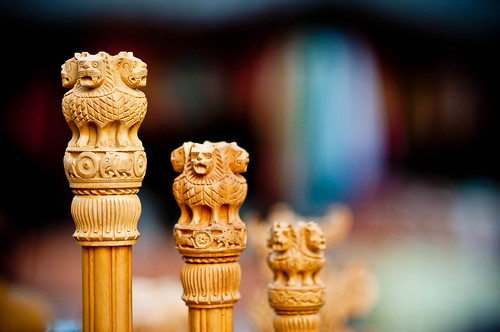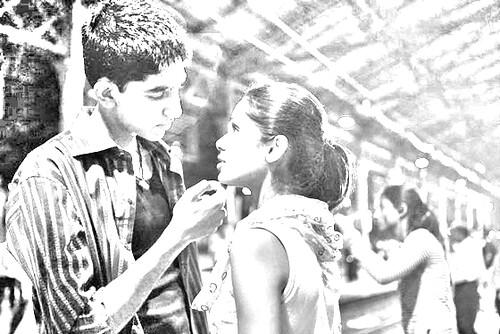I have completed my 2nd SEM exams months ago (actually I had written it almost an year ago) but all these days I have done nothing apart from watching a few movies (not a very fruitful thing to do really). To tell the truth these movies are ‘ok sort of according to many’. May be according to most of the people these movies are no good. The reputed news papers would pick out their faults in their reviews. Once one of my teachers told me that these films have their own ways of contributing. Well from that day onwards I have tried to find out how films which are commercial and stupid (according to the learned viewers of art films) have their own messages to deliver.
The funny thing is I keep on changing my goal like Dr. Faustus and I am no genius like Faustus. After a few days of raking my head thinking about messages of these films I started to question my pursuit – Should good films have good messages to deliver? Then films are no better than pamphlets and mere propaganda. Then the subject of good films should be caste based reservation or Singur or Nandigram – rather the issues of the day. But if such films are made, I was certain that I will be the last person to watch them and even if they become popular they would fade way once the social problem fades away. So now I have forgotten the idea good films having good messages to deliver. I have found that Indian film industry has a queer way of operating and influencing the masses. Movies coming out of Bollywood have really great influence on the people and many of the party leaders are actors. Take a look at regional parties – the leaders are very often from silver screen. In southern India people has a lot of trust in movie stars and the parties having high profile movie stars secure a sweeping victory. How does this trust come then? How do the movies affect our daily life?
Once Oscar Wilde said that art does not imitate life rather it’s the other way round – life imitates art. I think this is true for Indian cinema. In most of the countries movies are made in a way which fits their system but in India this is slightly different. It looks as if this is thoroughly Indian only with a western tinge. But this little western tinge modifies the society greatly and the people become ready for the things to come from the coming movies. Ask any middle aged Bengali about his or her notions of love. It would obviously be something like the sentimental comedies of Uttam Kumar and Suchitra Sen – very platonic and divine. But an honest young Bengali like me (who has gone through the tuning of modern Hindi Movies) would say platonic love is all very good but I would like to have a tinge of carpediem instead. These ideas can be changed by movies easily because of their huge influence on the masses.
After Dil Chatah Hai was released a new style of keeping beard became fashionable and boys started making spikes in their hair in a massive scale. After the movie was released, I and few of our school friends went for a short trip. We were always busy to make our trip like Akash’s trip to Goa with his friends. Some of my friends drank and danced to imitate the stupidity of Akash and his friends. Lakshay made wearing full sleeve under garments and half sleeve upper garment normal. I remember once I told one of my friends there’s nothing wrong in wearing such clothes, now it is also shown in the movies. So movies in India have a great power of naturalizing things. You can wear your watch over a wrist band once it’s shown in the movies. Popular movies have the capability to tune people and the society as a whole.
Fortunately or unfortunately I am not the only person to have such a revelation and the state machinery of India is also well aware of this little fact and they use this machinery of mind moulding to perfect use. Consider Faana and Kabul Express for a second and you will find that they have hidden agendas. In Faana the Kashmiri girl who loves a terrorist ultimately kills her love for the love of her country. She is a simple blind girl of the valley who has none but an old father and a little orphan child. Unlike any real woman, she is ready to give up her only hope to better her life for the cause of her country. Whatever praises the movie may get, to me this is the state machinery’s attempt to naturalize killing anybody who is anti-state and this is shown as the holy duty of all the responsible citizens. If Faana tries to naturalize our problems, Kabul Express deals with our foreign affairs. In the movie we find the Pakistani confesses that our realm is free from troubles that torn their realm or ‘mulk’ apart – meaning we live in a better place than Pakistan. The intricate relation of the Indians, the Afghan and the Pakistani and their dialogues show that none of them really like the American policy of dictating democracy. The end of the movie brings a hope that one day these countries will come out in flying colours and India will have a great role to play in it. Well there is more to it – the Taliban asks whether the Indian Muslim read namaz and mock at him calling him an Indian Muslim (may be a half Muslim!!) and the Indian answers that Indian Muslims do not believe in killing people and reading namaz simultaneously makes a man true Muslim to impress Indian Muslims are truly religious. So films may look very simple and only an entertainer but most of the times they are hardly so.
Popular Movies and Not So Popular Issues
14 May 2008 Leave a comment
in Movies, Pulp Fiction, Rustic Speaks Tags: Bollywood, Dil Chatah Hai, Kabul Express, Movies






